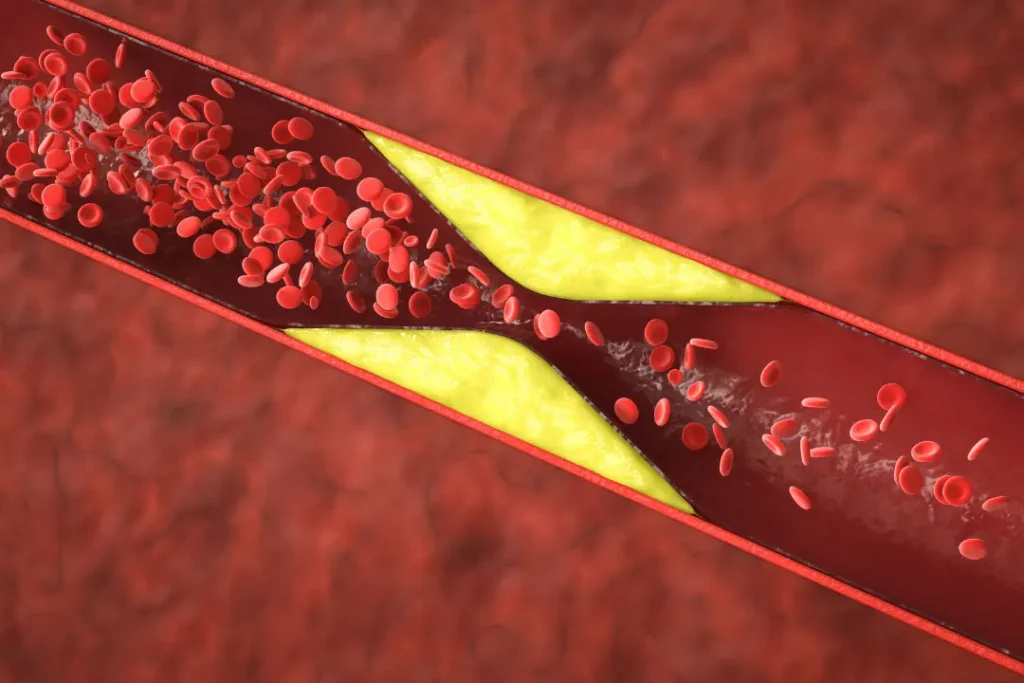Crocanthemum canadense, sometimes known as frostwort, has recently attracted increased interest from academics and professionals in the field of natural medicine. Frostwort is a Cistaceae plant native to North America that has received little research up until recently. This article’s goal is to examine the properties of this plant, its health advantages, the best dose, any potential negative effects, and any possible drug interactions. We also intend to offer a thorough examination of its chemical composition and the physiological processes that lead to its effects on the body and brain.
You May Also Like:
The 7 Most Powerful Huperzine A Brain Benefits
Discover The Power of Omega 3 Brain Repair For Optimal Mental Function
Frostwort: Benefits, Dosage, Side Effects, Drug Interactions, and Other Important Information is an original (NootropicsPlanet) article.
The Nature of Frostwort
Small, perennial herbaceous plants called frostwort flourish in a range of climatic settings, from dry areas to temperate woods. It is well-recognized for its frost-like white blossoms and thin, upright stalks. However, these outward characteristics barely scratch the surface of its intricate biological identity.
The distinctive chemical components of frostwort are what give it its actual character. Among them, flavonoids, tannins, saponins, and terpenoids are prominent, each of which contributes to the plant’s unique bioactive qualities. While saponins display a variety of biological actions including immune-modulating and cholesterol-lowering effects, flavonoids, on the other hand, are recognized for their strong antioxidant and anti-inflammatory characteristics.
Health Benefits of Frostwort
The many phytochemicals in frostwort are principally responsible for its beneficial effects on health. Its flavonoids’ antioxidant properties help fight oxidative stress, a major factor in aging and a number of chronic illnesses, including cancer, heart disease, and neurological disorders. Additionally, these flavonoids’ anti-inflammatory properties lessen the body’s reaction to inflammation, which helps treat ailments including inflammatory bowel disease, asthma, and arthritis.
Frostwort has been shown to contain saponins that have been shown to influence immunological response, making it a potential ally in the treatment of autoimmune illnesses and improving immune function in general. Additionally, the ability of saponins to decrease cholesterol may have effects on cardiovascular health, particularly when used to treat hypercholesterolemia.

Chemistry of Frostwort
Its intricate and distinctive phytochemical makeup lies at the heart of frostwort’s exceptional health benefits. The plant is abundant in terpenoids, tannins, saponins, flavonoids, and saponins, all of which individually contribute to its overall medicinal properties.
The well-known polyphenolic chemicals known as flavonoids have anti-inflammatory and antioxidant effects. Free radicals and reactive oxygen species have been discovered to be scavenged by them, preventing oxidative damage, which frequently results in chronic illnesses. Tannins, on the other hand, are astringent polyphenolic substances. Proteins and numerous other organic substances, such as amino acids and alkaloids, they bind to and precipitate.
Another important class of chemicals found in frostwort is saponins. These chemicals are glycosides that are well-known for foaming. Saponins have been demonstrated to have anticancer, immunomodulatory, and characteristics that decrease cholesterol. The biggest family of secondary metabolites found in plants, terpenoids, are also renowned for having a variety of biological properties, such as antibacterial, anti-inflammatory, and antiviral actions.
Physiological Mechanisms of Action
Frostwort’s physiological effects can be linked to the phytochemical components’ cooperative action. Due to their antioxidant properties, flavonoids protect against oxidative stress, a major contributor to aging and numerous chronic illnesses. They do this by scavenging dangerous free radicals and minimizing oxidative injury to cells and tissues.
Additionally, flavonoids have anti-inflammatory properties by preventing the production and action of certain pro-inflammatory mediators, such as cytokines and enzymes like cyclooxygenase and lipoxygenase. Asthma and other inflammatory diseases can both be helped by this.
Frostwort’s immunomodulatory properties are a result of its saponin content. They can activate the immune system by increasing the activity of certain immune cells and antibody production. This may facilitate the treatment of autoimmune diseases and enhance immune system function.
The capacity of saponins to bind to cholesterol in the gastrointestinal system, therefore limiting its absorption and consequently its blood levels, is assumed to be the cause of their cholesterol-lowering effects. This could have significant effects on cardiovascular health.

Optimal Dosage of Frostwort
Like many botanical supplements, the ideal dose of frostwort varies on a number of variables, including the particular health condition, the person’s overall health status, age, and body weight. Due to the lack of sufficient study, complete dose recommendations have not yet been produced. However, practitioners frequently advise starting with a low dose and gradually raising it while under medical supervision in order to monitor the body’s reaction and make any necessary adjustments.
Side Effects of Frostwort
Frostwort may have some health advantages, but it also has some drawbacks. Gastrointestinal discomfort, such as nausea, diarrhea, or cramping, might occur in some people. Before beginning or changing any supplement regimen, it’s critical to take into account these possible side effects and speak with a healthcare professional.

Potential Substance Interactions with Frostwort
Frostwort may interact with a variety of substances, including prescription drugs, because of the intricacy of its phytochemical makeup. Notably, because to its immune-modulating effects, it may interact with immunosuppressant medications, thereby lowering the efficacy of these medications. It may also interact with statins and other cholesterol-lowering medications, causing additive effects or unanticipated adverse effects, due to its possible cholesterol-lowering actions.
Best Responsible Use
Frostwort has a lot of promise as a nutritional supplement due to the variety of phytochemicals it contains. However, more thorough research is required to create recommendations for the ideal dosage, comprehend the entire scope of its health advantages, and spot any possible adverse effects or drug interactions. Frostwort should only be used under a doctor’s supervision until further study on this topic is accessible. By doing so, you can make sure that this product is used responsibly and with the fewest dangers possible.

Frostwort:
Conclusion
Frostwort supplements are a helpful natural solution for those seeking relief from chronic inflammation, respiratory issues, and skin conditions. If you need a prescription-free way to support your immune system and overall well-being, frostwort may be a valuable addition to your daily regimen.
As research into frostwort continues and additional uses and benefits are further explored, it is essential to stay informed and be cautious about the products available on the market. By approaching frostwort supplements with care and under expert guidance, you can harness all the benefits this botanical treasure has to offer, enhancing your general health and quality of life.
References:
- Saponins as tool for improved targeted treatment strategies. Retrieved From: https://www.nature.com/articles/1208170
- Anti-Inflammatory and Skin Barrier Repair Effects of Topical Application of Some Plant Oils. Retrieved From: https://www.ncbi.nlm.nih.gov/pmc/articles/PMC5796020/
- Polyphenols: Benefits to the Cardiovascular System in Health and in Aging. Retrieved From: https://www.ncbi.nlm.nih.gov/pmc/articles/PMC3831544/
Important Note: The information contained in this article is for general informational purposes only, and should not be construed as health or medical advice, nor is it intended to diagnose, prevent, treat, or cure any disease or health condition. Before embarking on any diet, fitness regimen, or program of nutritional supplementation, it is advisable to consult your healthcare professional in order to determine its safety and probable efficacy in terms of your individual state of health.
Regarding Nutritional Supplements Or Other Non-Prescription Health Products: If any nutritional supplements or other non-prescription health products are mentioned in the foregoing article, any claims or statements made about them have not been evaluated by the U.S. Food and Drug Administration, and such nutritional supplements or other health products are not intended to diagnose, treat, cure, or prevent any disease.


